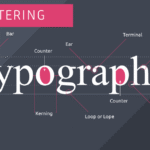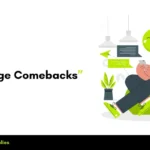Introduction
In 2014, the internet was shaken by a massive privacy breach that came to be known as The Fappening or Celebgate. Hundreds of private photos and videos belonging to celebrities were leaked online without consent. The scandal not only exposed flaws in digital security but also sparked global conversations about consent, ethics, and online responsibility.
One of the main terms that emerged during this time was “The Fappening Blog.” It referred to blogs, forums, and sites that collected and reposted the leaked material. These platforms grew quickly, feeding on internet traffic while ignoring the trauma caused to the victims.
This article takes a closer look at what “The Fappening Blog” was, how the leaks happened, the human and legal consequences, and why it remains relevant today. Most importantly, it highlights lessons in digital safety that everyone — not just celebrities — needs to understand.
What Was “The Fappening Blog”?
The phrase “The Fappening” was coined online to describe the widespread leak of private celebrity images in August 2014. “The Fappening Blog” was not a single official site but rather a collective term for websites and forums that shared or discussed the leaked material.
- These blogs acted as hubs of distribution, making stolen content easily accessible.
- They thrived on traffic and sensationalism, with titles promising “exclusive leaks.”
- Many were supported by advertising revenue, sometimes from shady or malicious ad networks.
For victims, these blogs represented not just theft, but the loss of control over their most personal and intimate moments. For curious users, they became portals to forbidden content. The combination created a storm that highlighted how quickly the internet can magnify harm.
How Did the Leaks Happen?
Contrary to early rumors, Apple’s iCloud system itself wasn’t directly hacked. Instead, attackers relied on more common and preventable techniques:
- Phishing Attacks – Victims received fake emails or login prompts that tricked them into revealing usernames and passwords.
- Weak Passwords – Many accounts had simple or reused passwords, making them vulnerable to brute-force attempts.
- Credential Stuffing – Hackers used previously leaked login details from other sites to break into new accounts.
- Social Engineering – Attackers guessed answers to common security questions based on publicly available information.
Once inside accounts, hackers accessed cloud backups that contained private images and videos. These files were then shared, reposted, and spread across forums, making containment nearly impossible.
Who Was Responsible?
Over time, multiple individuals were arrested and convicted for their roles in the scandal. They were charged with crimes such as unauthorized computer access, identity theft, and conspiracy. Sentences ranged from several months to multiple years in prison.
These prosecutions sent a message: hacking and distributing private content is not a victimless crime. It is a serious offense with real consequences. Still, the legal victories could not fully repair the damage done to victims’ reputations and mental health.
The Rise and Fall of “The Fappening Blog”
Why the Blogs Spread
- Curiosity and Voyeurism: The idea of seeing celebrities in vulnerable moments attracted millions of clicks.
- Ease of Access: Blogs provided a single place to find images that were otherwise scattered across forums.
- Monetization: High traffic translated into advertising dollars.
Platform Responses
- Reddit banned entire communities dedicated to the leaks, including the infamous r/TheFappening subreddit.
- Social media sites strengthened their rules around non-consensual explicit content.
- Search engines took steps to reduce visibility of offending sites, though copies and mirrors persisted.
Despite takedowns, content often resurfaced on new domains, proving how hard it is to erase stolen material from the internet once it spreads.
Human and Ethical Impact
Emotional Trauma
Victims of The Fappening described the leak as devastating. It wasn’t just about images — it was about losing privacy, dignity, and a sense of safety. For many, the scandal caused anxiety, depression, and ongoing distress.
Damage to Reputations
Even years later, the leaked photos still resurface in search results, articles, and forums. For some celebrities, this has remained a shadow over their careers, reinforcing how digital footprints are nearly permanent.
Ethical Questions
The scandal also raised difficult questions:
- Was consuming leaked content as harmful as publishing it?
- Should the media have covered the leaks at all, or did coverage fuel curiosity?
- How much responsibility do platforms have in protecting users from such violations?
The answers highlight the blurred lines between public curiosity and exploitation — and how quickly society can turn private suffering into public spectacle.
Lessons from The Fappening
The Fappening was more than a scandal. It was a wake-up call about digital safety and cultural attitudes. Some key lessons include:
- Digital Permanence – Once online, content is nearly impossible to erase completely.
- Consent Matters – Viewing or sharing leaked images, even passively, contributes to harm.
- Cloud Security Awareness – Many people were unaware of how vulnerable backups can be.
- Platform Accountability – Tech companies must act quickly to remove harmful material and prevent its spread.
- Public Responsibility – Users should think critically before clicking, sharing, or amplifying sensitive content.
How to Protect Your Privacy Online
Everyone is at risk of digital intrusion, not just celebrities. Here are practical steps to reduce the risk of your own data being exposed:
- Create strong, unique passwords for each account. Use a password manager.
- Enable two-factor authentication (2FA) wherever possible.
- Be cautious with suspicious emails and never click unknown links.
- Review cloud settings and disable automatic backups for sensitive material.
- Regularly check account activity to spot unusual logins early.
- Encrypt private files if stored digitally.
- Avoid oversharing personal details on social media that could be used to guess security questions.
These habits won’t guarantee absolute safety but will make attacks far more difficult.
Why “The Fappening Blog” Still Matters in 2025
Even though the original scandal happened more than a decade ago, its lessons remain relevant today:
- Cyber threats are evolving: With AI-powered phishing and deepfakes, privacy risks are even greater.
- Non-consensual content is still a problem: Revenge porn, leaks, and deepfake abuse continue to harm victims worldwide.
- Online culture hasn’t changed enough: Curiosity and sensationalism still drive clicks, often at the expense of others’ dignity.
In many ways, “The Fappening Blog” became a symbol — not just of a single scandal, but of the constant tension between digital convenience and privacy risk.
FAQs
1. What is “The Fappening Blog”?
It refers to websites and forums that reposted or aggregated celebrity images leaked during The Fappening scandal of 2014.
2. How did hackers steal the celebrity photos?
Hackers used phishing, weak passwords, and credential-stuffing techniques to break into cloud accounts and extract private backups.
3. Were the people behind The Fappening punished?
Yes. Several individuals were arrested and sentenced to prison for unauthorized access and identity theft.
4. Can ordinary people be victims of similar leaks?
Yes. Phishing, weak credentials, and poor cloud security can affect anyone, not just celebrities.
5. How can I protect my private files from leaks?
Use strong passwords, enable two-factor authentication, avoid suspicious links, and secure sensitive files with encryption or offline storage.
Read More; How to Retry Claude: A Complete User Guide
Conclusion
The Fappening Blog stands as one of the darkest examples of digital privacy violation in internet history. What began as a celebrity scandal quickly became a cultural turning point — showing how technology, curiosity, and exploitation can combine to cause lasting harm.
For the victims, the trauma was real and ongoing. For the public, it was a stark lesson about the permanence of online data, the importance of consent, and the responsibilities we all share in shaping internet culture.
Even a decade later, the story of The Fappening Blog matters. It reminds us to secure our digital lives, demand accountability from platforms, and think critically about the content we consume. Most importantly, it highlights a universal truth: privacy is dignity, and protecting it is essential in the digital age.







